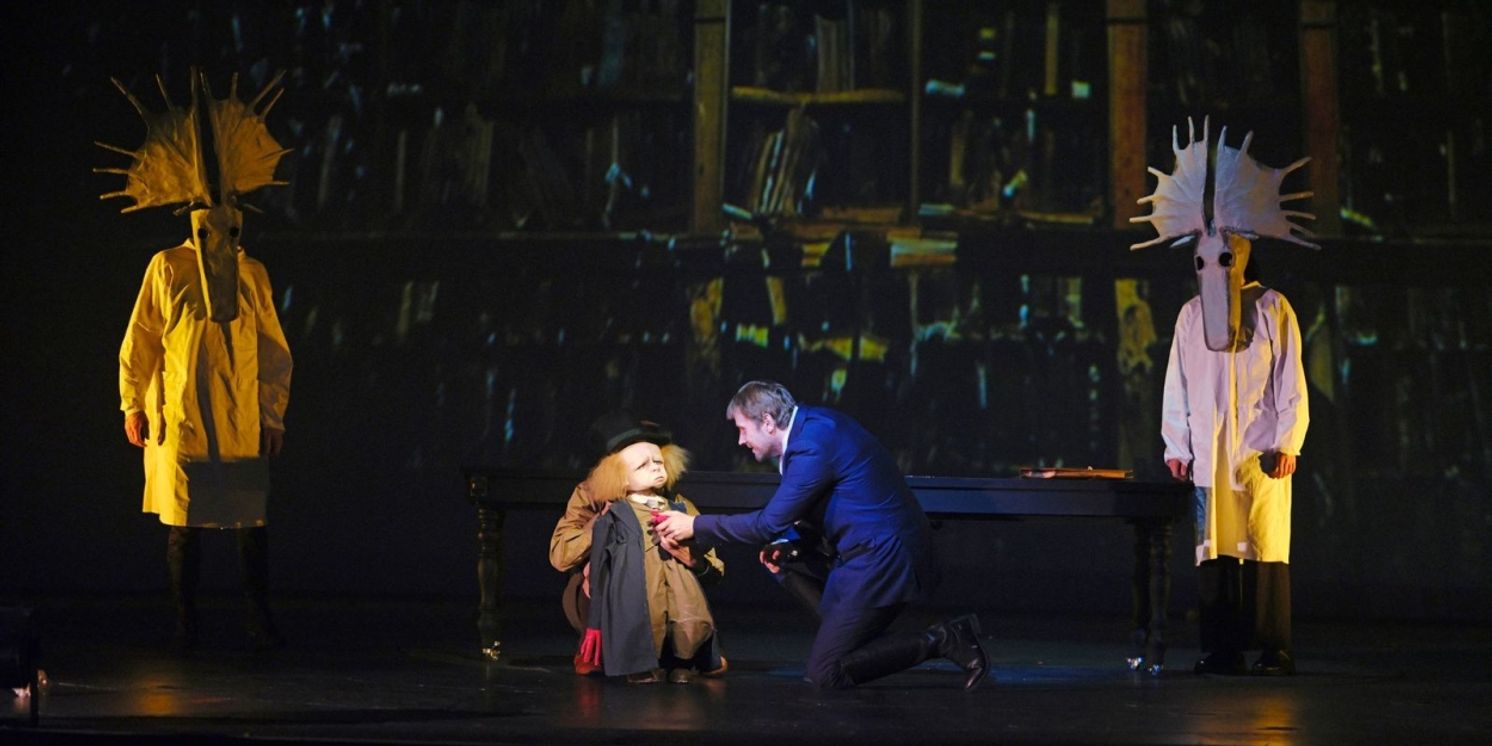Review: KING STAKH'S WILD HUNT, Barbican
The Belarus Free Theatre returned to the Barbican for a limited run


It’s impossible not to be in awe of the Belarus Free Theatre. No other theatre company in Europe has the grim accolade of being exiled from their home country; its members risk imprisonment if they return to their native Belarus. A living testament to art’s ability to speak startling truth to even the most terrifying of political powers, the company always deserve our attention and support.
Their last production Dogs of Europe, performed last March in the early days of the war in Ukraine, was a prophetic vision of dystopian Europe. Less a mirror to reality and more a Dantean inversion of it, still disturbingly recognisable, the production crept under the skin.
Regrettably their latest offering is artistically restrained, an adaptation of Belarusian author Uladzimir Karatkievich’s King Stakh’s Wild Hunt, itself adapted from Eastern European folklore. Performed in Belarusian, whilst undeniably atmospheric and dripping with a kind of gothic menace that would make Guillermo Del Toro giddy with demented glee, even the most symphonic staging cannot bring music to a gloomy plot.
A folklorist stumbles across a castle to shelter from a storm. Soon he finds himself entangled within its ghostly mystery: the castle’s owner is cursed after her ancestor betrayed the titular King Stakh. A spectral wild hunt appears outside but subterfuge and conspiracy abound, nothing is what it seems.
The story melts from gothic mystery into surrealist horror up to a point where everything is indiscernible. There's a carousel of gorgeously characterised heroes and villains but it’s hard to decipher who is who with its uncompromisingly poetic surtitles that are occasionally blocked by the murky staging.
And yet the production retains a mesmeric power. Incorporating a heady mix of dance, opera, acrobatics, and washed in a dark but glistening sea of projections, even if the labyrinthine is difficult to navigate, it is beautiful to get lost in.
Its eerie energy pulsates partly thanks to the live score from composer and sound designer Olga Podgaiskaya’s symphonic swirl of styles. Mostly channelling Philip Glass, repetitive arpeggios deepen the mystery. But it morphs into other styles; folk music and waltz wave their way into the rich score.
At a stretch one could read the family curse as a grim symbolic reflection of the cycles of violence passed on from generation to generation in politically unstable areas of Eastern Europe. Longing for peace is longing for future lives to live in peace. But it is difficult to put the constituent parts of King Stakh's Wild Hunt together to see the bigger picture.
During a pre-show talk Natalia Kaliada, artistic director of the company, tells us solemnly that one of the Ukrainian vocalists was told that their apartment had been shelled during rehearsals. Political dissidents who are friends of the company have died in prisons since the beginning of the war in Ukraine.
Nobody can deny the humanitarian force of what unfolds on stage even if the artistry doesn’t quite hit the mark.
King Stakh's Wild Hunt played at the Barbican
Photo Credit: Linda Nylind
Reader Reviews
Videos

